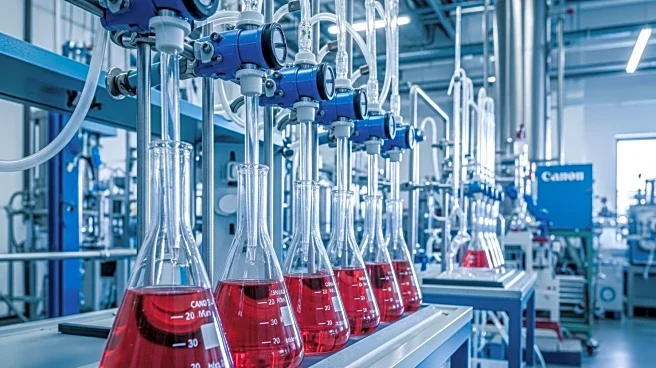What is the story about?
What's Happening?
The German chemical industry is experiencing a significant downturn, with the IFO Institute reporting a Business Climate Index of -19.2 points in July 2025. This decline is attributed to weak industrial demand and geopolitical risks, including U.S. tariffs on chemicals and pharmaceuticals. Major firms like Henkel and SGL Carbon have reduced their sales forecasts for 2025. The industry lobby, VCI, has noted a 0.5% sales decline in the first half of 2025, with production falling 1% year-on-year. Structural challenges such as high energy costs and excessive bureaucracy further exacerbate the situation, despite German government efforts to implement fiscal reforms and infrastructure investments.
Why It's Important?
The downturn in the German chemical industry highlights broader geopolitical tensions and their impact on global supply chains. U.S. tariffs have disrupted trade, forcing companies to relocate production to mitigate costs. This situation underscores the need for agility in investment strategies, as investors shift focus from vulnerable sectors to more resilient ones like renewable energy. The German government's industrial investment plan aims to create new opportunities in green energy and digital networks, attracting capital from firms like Siemens Energy and Nordex SE. However, challenges such as permitting delays and labor shortages persist, affecting the pace of the energy transition.
What's Next?
The chemical sector is expected to remain in a downturn until at least 2026, with recovery contingent on easing trade tensions. Investors are advised to adopt a dual strategy, balancing short-term caution with long-term opportunities in Germany's green and digital transformation. The IFO Institute suggests that fiscal reforms and infrastructure investments could stabilize the industry by 2026, provided geopolitical risks are managed effectively.

















